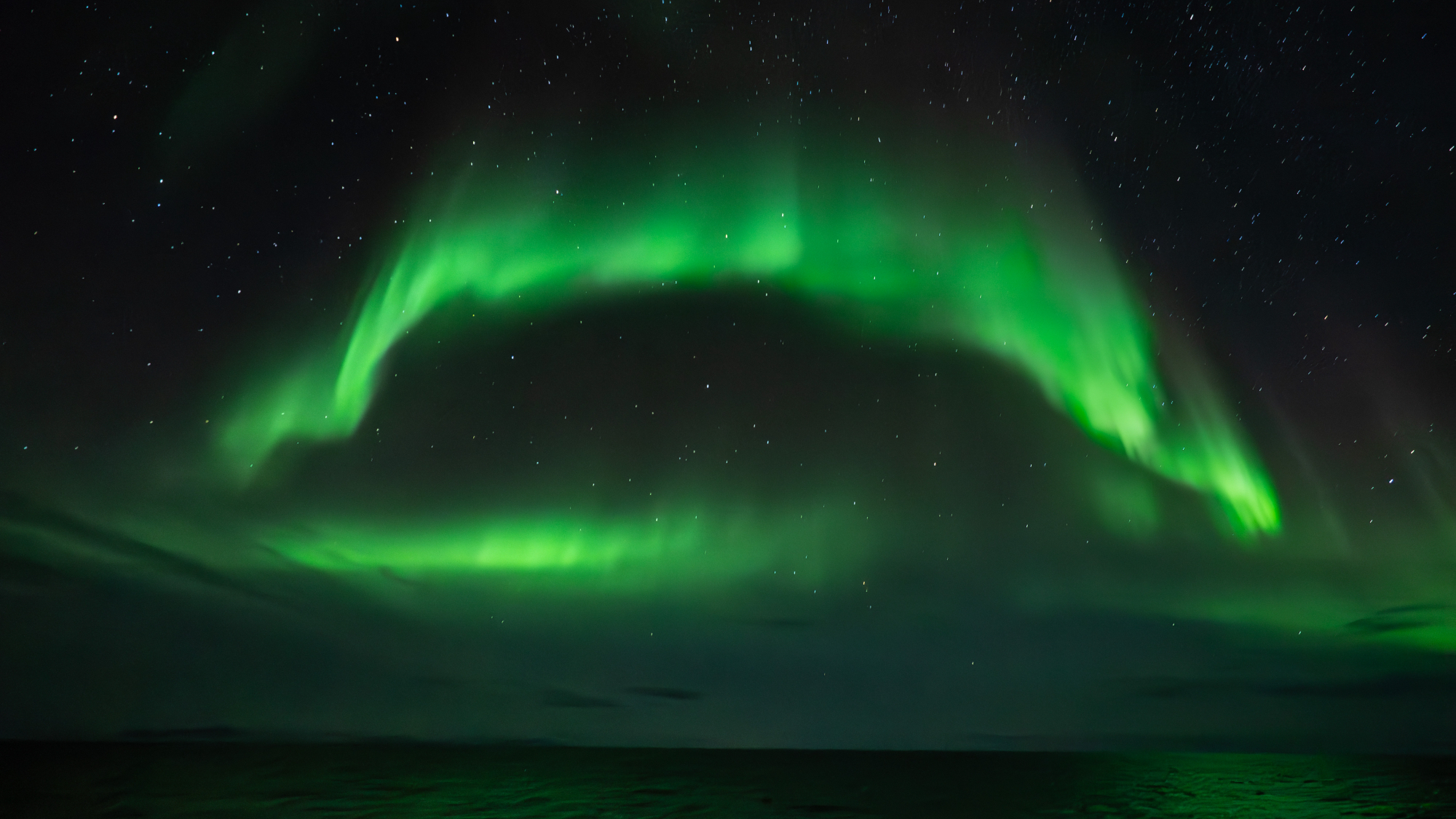
There might be total darkness in the depths of the sea, but the sun still impacts the abyss. During this month's solar storms — you know, the ones that resulted in the aurora lighting up half of the planet on May 10 — Ocean Networks Canada's (ONC) deep-sea observatories recorded disturbances in the Earth's magnetic field.
The ONC observatories are located from the Arctic to the Antarctic and have more than 12,000 sensors recording data — that includes compasses used to measure ocean currents. Concurrent with this month's explosive solar activity, the compasses recorded significant anomalies — dramatic shifts in the earth's magnetic field. One compass at the NEPTUNE observatory near Vancouver Island changed direction between +30 and -30 degrees.
This wasn't the first time the team had seen solar-influenced anomalies in underwater compass readings. In late March, while performing standard quality control checks, ONC scientific data specialist Alex Slonimer noticed the same magnetic field fluctuations in the data, albeit on a smaller scale.
Related: New sunspot regions emerge, strong solar flare recorded
"I looked into whether it was potentially an earthquake, but that didn't make a lot of sense because the changes in the data were lasting for too long and concurrently at different locations," Slonimer said in a statement. "Then, I looked into whether it was a solar flare as the sun has been active recently."
It was indeed solar activity that influenced the compasses beneath the sea — some situated as deep as 1.7 miles (2.7 kilometers) beneath the surface. Similar anomalies that coincided with the May 2024 solar storms further bolstered the fluctuations' connection to the sun.
"The reach of these data recordings kilometers under the ocean surface highlight the magnitude of the solar flare over the past weekend and suggest that the data may be useful for better understanding the geographic extent and intensity of these storms," ONC president and CEO Kate Moran said in the statement, which was put out on May 15.







